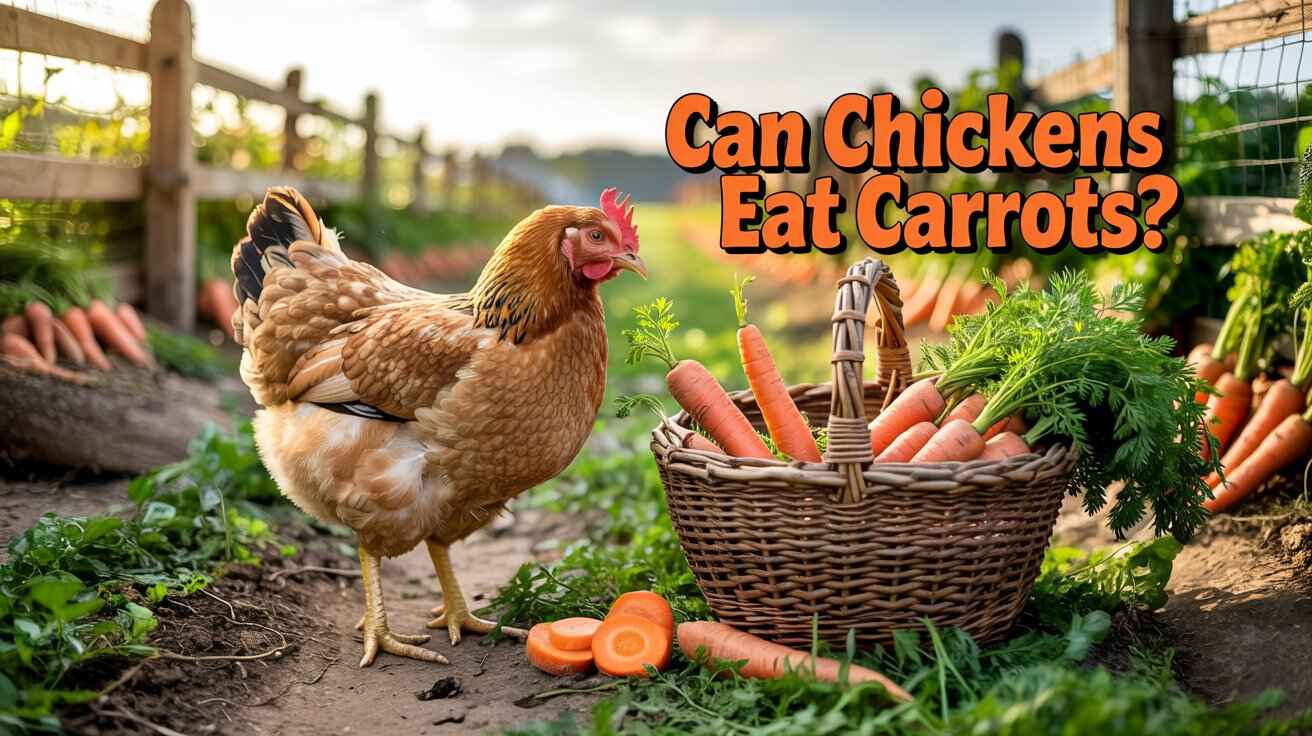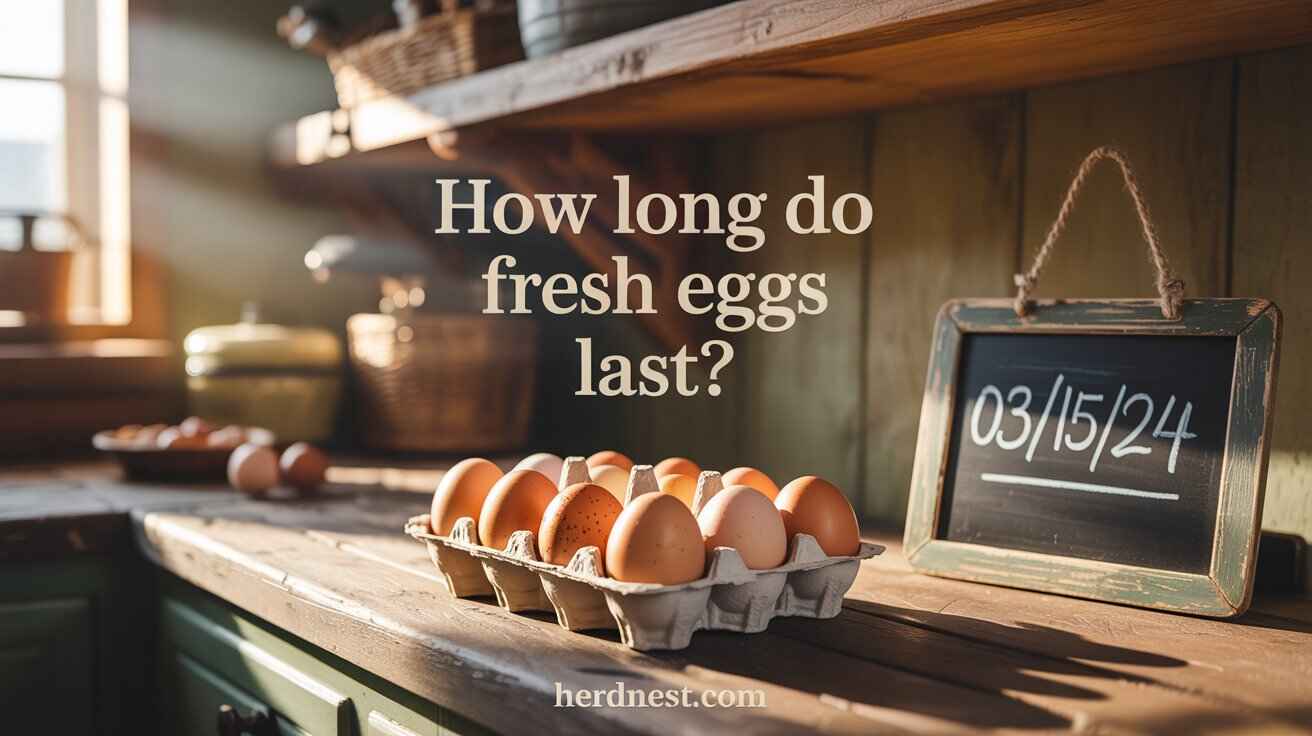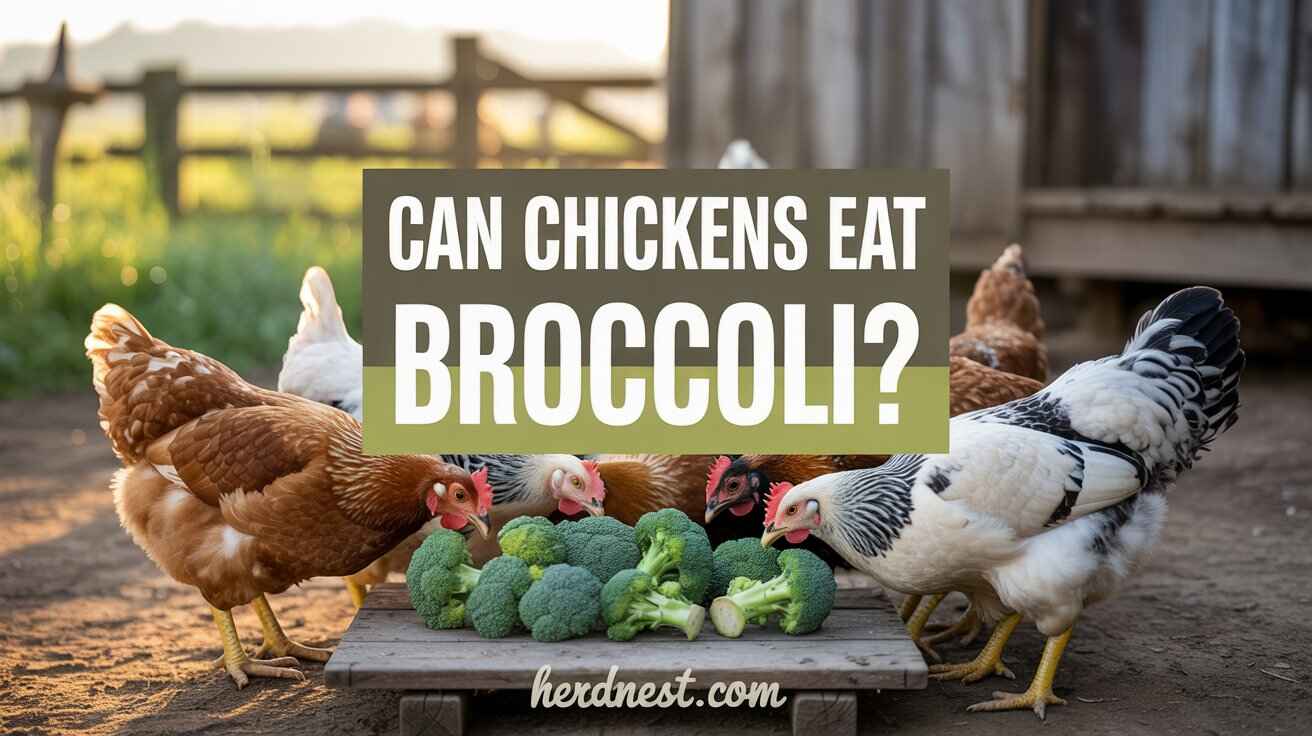When it comes to caring for chickens, knowing what to add to their diet is vital for their well-being. In my experience, chickens not only enjoy carrots but also benefit from them.
Packed with essential nutrients and minerals, carrots are a great snack that can complement their commercial feed. While chickens aren’t as common as cats or rabbits in many households, they’ve become popular among people looking for an ethical way to get fresh eggs. Having a small backyard coop is an easy way to ensure your birds are healthy and happy.
Carrots can be a delightful addition to their food, serving as a favorite treat. Chickens are rarely fussy when it comes to vegetables, and carrots are no exception. Whether raw or cooked, they fit perfectly into a regular diet.
Feeding chickens treats like carrots also strengthens the bond between owners and their flock. Plus, for those concerned about the harsh living conditions of battery chicken production, this simple addition aligns with more sustainable keeping practices. With just a bit of preparation, carrots can be safely introduced into your chickens’ feeding course, enhancing their diet and overall health.

Table of Contents
ToggleCan Chickens Eat Carrots?
Yes, chickens can safely eat carrots—and they love them too! Carrots are a nutritious treat packed with essential vitamins and minerals like beta carotene, vitamin A, and potassium, which support vision, immunity, digestion, and overall health.
Whether raw or cooked, carrots can easily be added to your flock’s diet, though raw carrots retain more nutrients. Offering carrots not only enhances your chickens’ meals but also reduces kitchen waste and feed costs. Just be sure to serve them in moderation alongside a balanced diet, and always provide clean, fresh water. With a little prep, carrots can be a healthy, sustainable treat your chickens will happily peck at!
Why Should Carrots Be Included in a Chicken’s Diet?
Carrots are a fantastic addition to a chicken’s diet, offering more than just one reason to include them in their daily feed. They support the eyesight of your poultry, ensuring better improvement in overall health. In my experience, adding a small number of carrots into their meals not only keeps your chickens happy but also leaves them benefitting from the essential nutrients they provide.
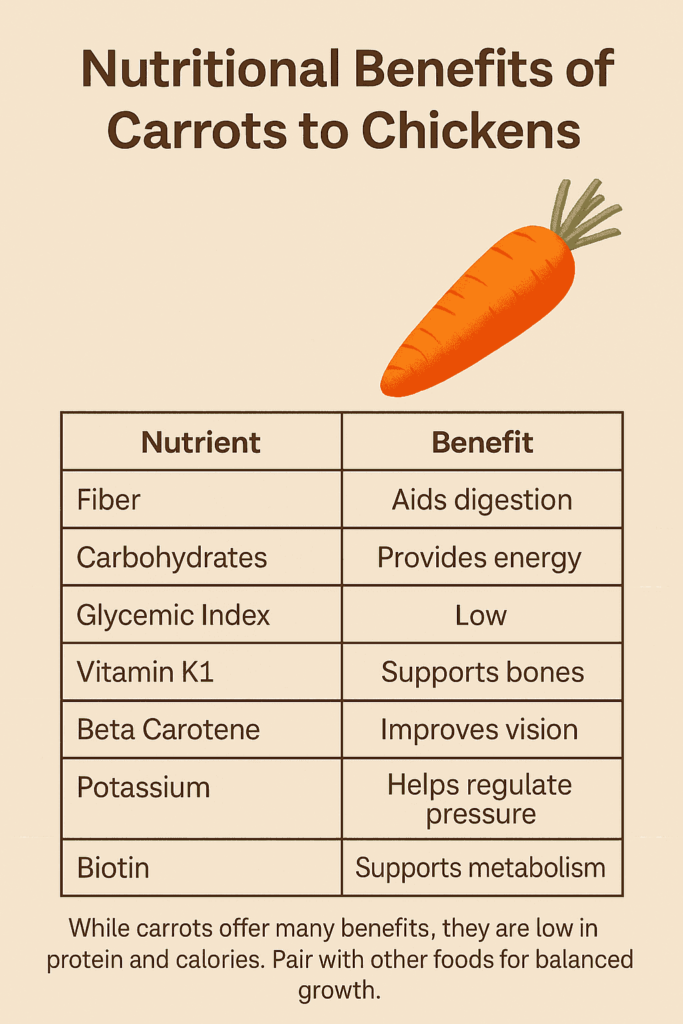
Nutrients and Minerals
Carrots are packed with nutrients and minerals that support a chicken’s overall health. They are high in fiber, which aids digestion, slows the absorption of starch and sugar, and helps reduce cholesterol levels in the blood.
Carrots also provide essential carbohydrates like glucose and sucrose, offering the energy your chickens need to stay active. Despite their natural sweetness, they rank low on the glycemic index, making them a healthy addition to their diet.
Rich in vitamins such as K1, which supports bones and coagulation, and beta carotene, which improves vision, carrots also strengthen the immune system and regulate pressure levels through potassium.
Nutrients like biotin aid in the metabolism of protein and fat, ensuring a balanced and well-rounded diet. While carrots have many benefits, they are low in protein and calories, so pairing them with other foods will promote proper growth and development for your chickens.
Health Benefits
Carrots provide amazing benefits for your chicken’s diet and overall well-being. They are packed with essential nutrients like beta carotene and vitamin A, which enhance vision and strengthen the immune system, helping to protect against infections.
The healing process is supported by collagen production thanks to vitamin C, which aids in repairing injuries. Including carrots in their meals can result in glossier coats and healthier feathers, along with stronger bones due to the presence of carotenoids that promote cell growth and improve metabolism.
Additionally, the antioxidants and flavonoids in carrots enhance liver health and its function, making carrots an excellent addition to any coop. If you’re also looking for refreshing summer treats packed with hydration, don’t miss our guide on Can Chickens Eat Watermelon?.
Reduces Waste and Costs
Feeding your chickens leftover carrots and other vegetables is a smart way to reduce waste and cut down on costs. Instead of feeling guilty for throwing away extra food from your Sunday dinner, you can use these food scraps as a healthy treat for your flock.
This approach is not only sustainable but also helps lower the need for expensive commercial feed, saving your bank card from extra expenses. However, always ensure the scraps aren’t high in fat or salt, as these are bad for their health, and avoid anything that looks like it might spoil. Keeping your chickens’ diet fresh and balanced with leftover foods is both cost-effective and good for the environment.
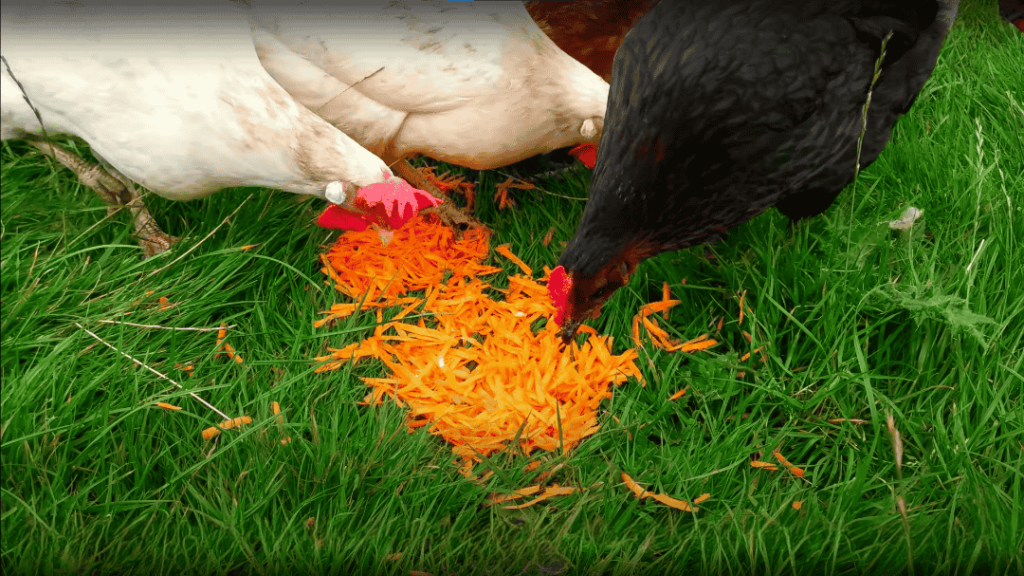
How to Give Chickens Carrots
Chickens don’t have teeth, but their gizzard makes it easy for them to digest tougher foods like carrots. Once the food is swallowed through their beak, the organ breaks it down without the need to chew.
This means you don’t need much preparation—whether the carrots are raw or cooked, your birds can enjoy this orange vegetable with ease. If you’re also curious about feeding other vegetables, be sure to check out Can Chickens Eat Potatoes? to learn how safe and healthy potatoes can be for chickens.
Serve it up on a plate, and with a few simple steps, you’ll feel confident knowing your animals are getting a healthy meal. While there are some differences in texture between raw and cooked carrots, either option works well for your flock.
Cooked Carrots vs. Raw
Chickens may not be picky eaters, but like humans, they have preferences when it comes to their food. Whether you serve cooked or raw carrots, each has its own advantages.
While cooking reduces some nutrients, making raw carrots more beneficial for their health, cooked carrots are still fine to feed your flock. Remember, raw carrots are low on the glycemic scale, which makes them a better option for your chickens’ digestive systems.
Before serving raw carrots, ensure they are properly washed to remove pesticides, toxins, or chemicals that might harm your flock.
During feeding time, pay attention to how your chickens react—through a bit of trial and error, you can determine which option they enjoy most. Whether in the coop or on a bowl, offering clean carrots ensures better care for their health.
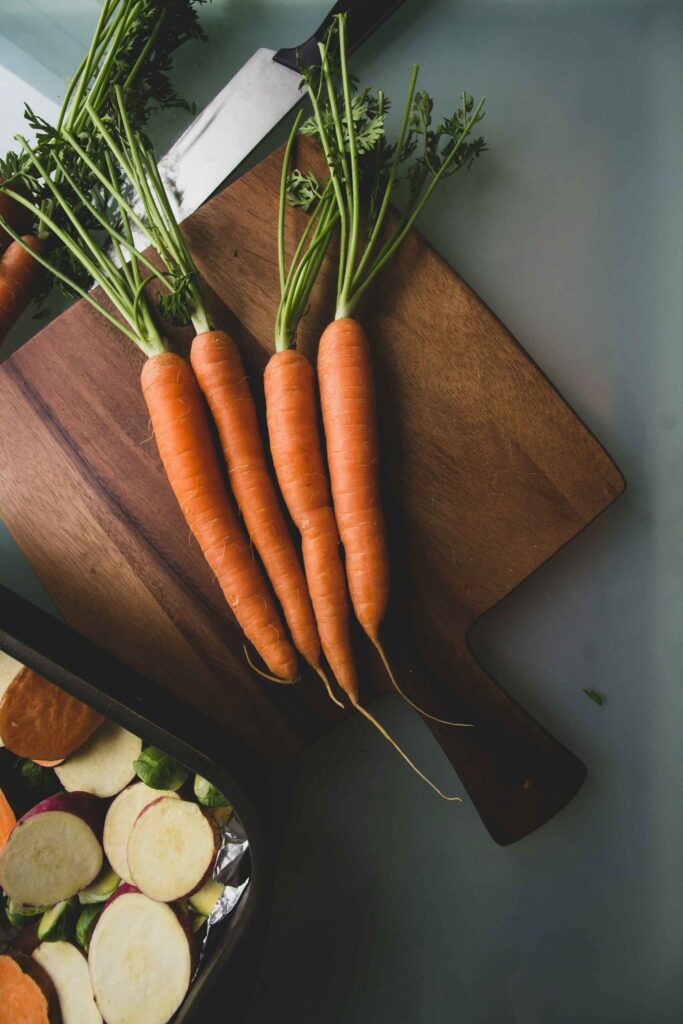
Should You Cut the Carrots into Small Pieces?
Whether to chop your carrots depends on how they are prepared. If they are cooked, cutting them into bite-size treats makes it easier for your chickens to eat. For raw carrots, you can simply toss them in whole, letting your chickens peck at and move them around the coop.
This keeps them active and even adds to their health by promoting exercise. You might notice a frenzy as they enjoy their carrot snack, running like headless chickens in excitement. To maintain a balanced diet, try serving carrots between meals or using separate bowls to encourage them to sample both regular food and treats, ensuring they don’t get gorged on one and skip the other.
Conclusion
Chickens can safely enjoy carrots as part of their diet, offering many benefits for their health and overall well-being. Rich in nutrients, carrots help boost immunity and can even lower cholesterol, making them an advantageous addition to their meals.
While chickens aren’t picky eaters, they certainly appreciate a good treat, and carrots are a great way to diversify their diet alongside other vegetables and occasional mealworms. Plus, offering carrots is beneficial for you, too—it helps reduce household waste and cuts down on costs for pellets and other chicken feed.
However, as with any food, moderation is key. Too much of a good thing can have a downside, so ensure that carrots are part of a varied diet that includes other nutritious options.
Always provide a fresh supply of clean water to prevent dehydration, and make sure their meals are well-balanced to keep your feathered friends happy and healthy. With proper care, carrots can be an easy, beneficial way to enrich your chickens’ daily routine.
